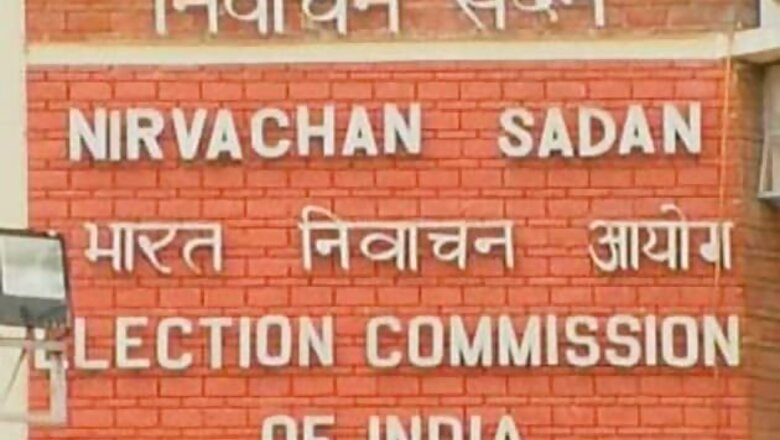
views
New Delhi: Pointing at delays, the Election Commission has asked Parliament and state legislatures to put in place a mechanism to ensure that in cases where conviction by a court leads to disqualification of a lawmaker, the notice in this regard is issued immediately and "without discrimination".
In its July 10, 2013, judgement, Supreme Court had struck down sub-section 4 of Section 8 of the Representation of the People Act, under which incumbent MPs, MLAs and MLCs can avoid disqualification till pendency of the appeal against conviction in a higher court. As the SC verdict is the law of the land now, conviction of lawmakers in certain cases, including those relating to corruption, leads to their immediate disqualification as a member of any House of legislature.
In a set of instructions issued to the Lok Sabha and Rajya Sabha secretariats as well as secretariats of state legislatures, the Commission has pointed out that "in some cases, there has been delay in the issuance of such notification by the secretariat of the House". It said that the delay leads to situations where "the member who had incurred disqualification continues to be a member of the House in violation of provisions of Article 103 (of the Constitution) and law laid down by the Supreme Court".
The Commission told Parliament and state legislatures to enforce the law regarding immediate disqualification upon conviction "without any discrimination". It said the Chief Secretary of a state should ensure that secretariats of Lok Sabha, Rajya Sabha, state Assembly and state Council -- as be the case -- should be immediately informed of conviction of a member by any court.
It said the information about conviction and the subsequent notification of disqualification should not take more than seven days each. The first disqualification from Parliament had come on October 21, 2013, after 66-year-old Rashid Masood, a Congress member of Rajya Sabha, was held guilty in a case of corruption and other offences in the month before. RJD chief Lalu Prasad and JD(U) leader Jagdish Sharma were disqualified as Lok Sabha members on October 22, 2013, following their conviction in the fodder scam.
Theirs was the first disqualification from Lok Sabha after Supreme Court struck down the provision that protected a convicted lawmaker from disqualification on the grounds of pendency of appeal in higher courts. Seeking to negate the SC verdict, the then UPA government had brought a Bill in Parliament. However, following differences with the opposition, that Bill could not be passed.
An ordinance on the lines of the Bill was later cleared by the Union Cabinet on September 24, 2013, to protect convicted lawmakers. But reversing its earlier step, the Cabinet on October 2 had decided to withdraw the Ordinance as well as the Bill in the wake of a public outburst against it by Congress Vice President Rahul Gandhi.
The overturning of the decision had come in the wake of Gandhi's trashing of the Ordinance as "nonsense". He had said it should be "torn" and "thrown out". President Pranab Mukherjee, too, had questioned the government over the ordinance. Clearing the air about the procedure to be followed following the conviction of an MP, the then Attorney General, late GE Vahanvati, had told the Lok Sabha Secretariat that the notification declaring the seat vacant should be issued "immediately".

















Comments
0 comment